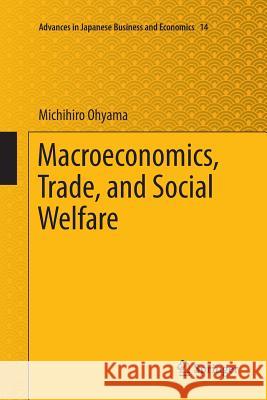Macroeconomics, Trade, and Social Welfare » książka
topmenu
Macroeconomics, Trade, and Social Welfare
ISBN-13: 9784431566977 / Angielski / Miękka / 2018 / 232 str.
Kategorie:
Kategorie BISAC:
Wydawca:
Springer
Seria wydawnicza:
Język:
Angielski
ISBN-13:
9784431566977
Rok wydania:
2018
Wydanie:
Softcover Repri
Ilość stron:
232
Waga:
0.35 kg
Wymiary:
23.39 x 15.6 x 1.32
Oprawa:
Miękka
Wolumenów:
01
Dodatkowe informacje:
Wydanie ilustrowane











